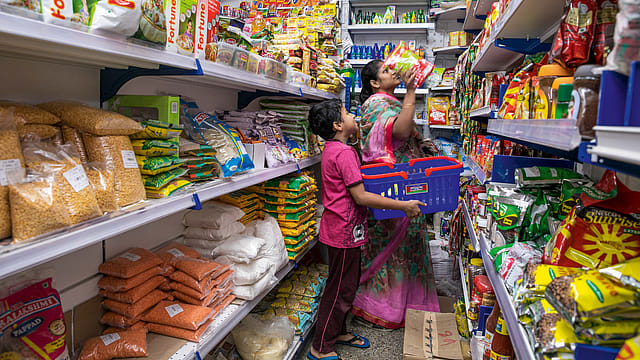India to witness downside risks to growth and upside risks to inflation: Finance Ministry
ADVERTISEMENT

India will witness downside risks to growth and upside risks to inflation partly channelled through the external sector and partly originating from weather uncertainties, according to the Monthly Economic Review for April 2023, released by the Department of Economic Affairs, under the Ministry of Finance.
"Yet a strong point going India’s way is the strength of its domestic demand. Consumption has shown steady and broad-based growth, while investment in capacity creation and real estate is finding traction. April is too early to forecast the economic outcomes for the entire year. A good beginning, though, is a harbinger of positive outcomes," the ministry says in a statement.
According to the monthly economic review, FY24 for the country’s economy opened on the back of strong activity witnessed in the last quarter of FY23. In the coming months of FY24, the food inflation is expected to be low owing to the expected bumper harvest of food grains in FY23 and brightened prospects for the kharif season.
"The forecast of a normal monsoon, surplus water reservoir levels, adequate availability of seeds and fertilisers, and robust tractor sales augurs well for a healthy kharif sowing season starting in June 2023. Despite unseasonal rains, smooth public procurement of wheat augurs well for food security," says the ministry.
"Going forward, several factors, such as weaker than expected oil supply, higher than anticipated demand from China, intensification of geo-political tension and unfavourable weather conditions, may pose an upside risk to these forecasts. Prices of commodities sensitive to El Niño effects, such as coffee, rice, palm oil, and natural rubber, need to be continuously monitored," it adds.
January 2026
Netflix, which has been in India for a decade, has successfully struck a balance between high-class premium content and pricing that attracts a range of customers. Find out how the U.S. streaming giant evolved in India, plus an exclusive interview with CEO Ted Sarandos. Also read about the Best Investments for 2026, and how rising growth and easing inflation will come in handy for finance minister Nirmala Sitharaman as she prepares Budget 2026.
The country’s retail inflation hit an 18-month low of 4.7% in April on easing food prices, which is within the Reserve Bank of India’s (RBI) target band of 4% to 6%. While rural inflation eased to 4.68% in April from 5.51% in March, urban inflation stood at 4.85% in April as against 5.89% in March. The inflation rate for vegetables contracted to 6.5% in April. Inflation in edible oils and other fats narrowed to 12.33%. Meanwhile, the country’s wholesale inflation in April stood at -0.92% as against 1.34% recorded in March this year. This was the first time, since July 2020, that the WPI plunged below zero primarily due to a fall in prices of basic metals, food products, mineral oils, textiles, non-food articles, chemical & chemical products, rubber & plastic products, and paper & paper products.
Notably, the ministry expects a record production of food grains in the upcoming months. "Food grains production is estimated at 32.4 crore tonnes, 2.5% higher than the previous year’s estimate and achieving record production levels for the seventh consecutive year. The growth in food grains is broad-based across all the principal crops covering the rabi and kharif seasons. Besides food grain, production of oilseeds and sugarcane production is also estimated to reach record production levels," the ministry says.
"Healthy prospects for the kharif season, higher Minimum Support Prices (MSP) for crops and increased budgetary spending by the government will likely enhance the farmers’ income and boost the rural economy. Current indicators of demand for the rural economy are gaining momentum," it adds.
According to the economic review, prices of all commodities, barring precious metals, are likely to moderate in the current year, though remaining well above pre-pandemic levels.
Notably, exports will drive the next wave of growth, as per the economic survey. In April, 2023, the country’s merchandise exports fell by 12.6% to $34.66 billion in April 2023 from $39.70 billion in April 2022. The fall in exports during April was led by petroleum products, gems and jewellery, organic chemicals, and textiles. However, despite a decline in exports last month, the commitment to enhance ease of doing business, e-initiatives and e-commerce under foreign trade policy (FTP) is expected to strengthen the growth of service sector exports in the coming months of FY24.
